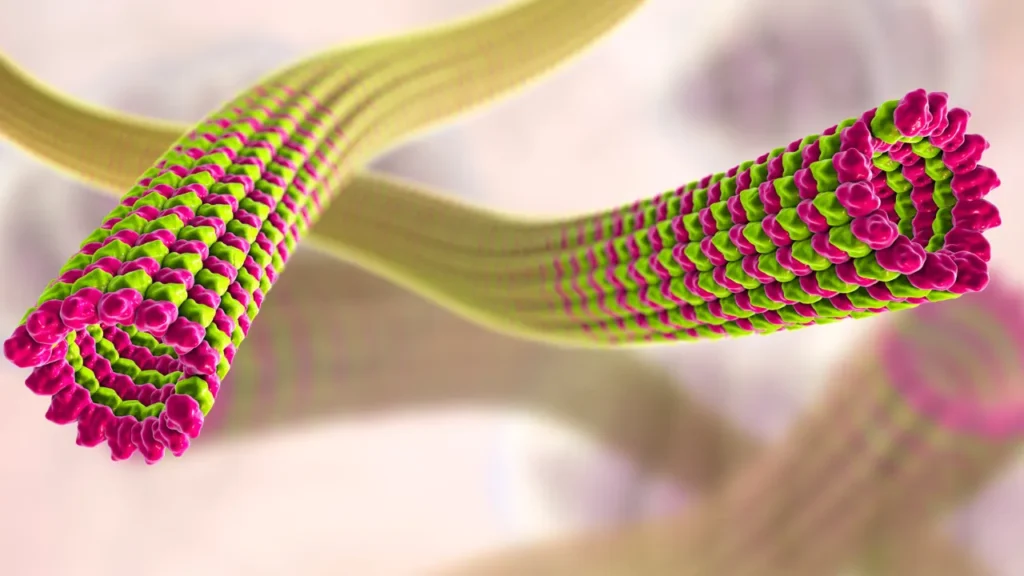There are various species of deciduous trees in the Morus genus, also known as the mulberry, that yield berries with a unique flavor. The black mulberry, Morus nigra, which is native to western Asia, has been grown for millennia for its fruit, foliage, and medicinal benefits. This article explores the properties of black mulberry, as well as its health advantages, ideal dosage, negative effects, possible drug interactions, and other relevant details to assist readers in making responsible usage decisions.
You May Also Like:
5 Great Nootropic Herbs for Focus and Mental Clarity
5 Great Nootropic Herbs for Energy, Focus, and Productivity
Black Mulberry: Benefits, Dosage, Side Effects, Drug Interactions, and Other Important Information is an original (NootropicsPlanet) article.
Nature of Black Mulberry
The black mulberry is a deciduous tree with a dense canopy that can grow up to 12 meters tall and leaves that have deep-lobed, heart-shaped shapes. The aggregate structures of the fruits, which are made up of several little drupelets, have a distinctive dark purple to black color. They are eaten fresh or used in a variety of culinary preparations, such as jams, jellies, and wines, as they have a distinctive sweet-tart flavor. Black mulberry’s potent phytochemical profile contains flavonoids, anthocyanins, alkaloids, and phenolic acids, which are responsible for its medicinal properties.
These substances are known to have anti-inflammatory, antibacterial, anticancer, antioxidant, and other qualities, therefore consuming the fruit or its derivatives has a variety of positive health effects.
Health Benefits of Black Mulberry
1. Antioxidant Capabilities
The powerful antioxidant properties of black mulberries, particularly cyanidin-3-O-glucoside and cyanidin-3-O rutinoside, have been connected to one of its many health advantages. These substances can neutralize free radicals and prevent oxidative stress, preventing cell damage and lowering the risk of chronic illnesses like cancer, diabetes, and cardiovascular disease.
2. Anti-inflammatory
By blocking pro-inflammatory mediators like cyclooxygenase-2 (COX-2) and inducible nitric oxide synthase (iNOS), the phenolic compounds present in black mulberries, including gallic acid, chlorogenic acid, and rutin, have been proven to have anti-inflammatory effects. This shows that black mulberry may be able to treat inflammatory diseases like inflammatory bowel disease and arthritis.
3. Neuroprotective effects
Additionally demonstrated to have neuroprotective properties are black mulberries, whose phytochemicals can alter different signaling pathways and shield neurons from oxidative harm. Black mulberry anthocyanins, for instance, can reduce the buildup of amyloid-beta (A) peptides, which are thought to be a factor in the etiology of Alzheimer’s disease. Furthermore, the antioxidant qualities of the fruit can shield neurons from oxidative stress-induced apoptosis, which may be a leading factor in neurodegenerative diseases like Parkinson’s disease.
4. Anti-diabetic properties
It has been discovered that black mulberry influences insulin sensitivity and glucose metabolism to have anti-diabetic benefits. The anthocyanins in the fruit can inhibit the enzymes glucosidase and amylase, which slow down the breakdown and absorption of carbs. As a result, it lowers postprandial hyperglycemia. Additionally, black mulberry can boost GLUT-4 expression in skeletal muscles, enhancing glucose uptake and lowering insulin resistance.

Chemistry of Black Mulberry
The numerous health advantages of black mulberry are due in large part to the abundance of bioactive chemicals it contains. The following classes are used to group these compounds:
- Flavonoids: These polyphenolic substances have anti-inflammatory, antioxidant, and anticancer effects. The main flavonoids found in black mulberry are quercetin, rutin, and isoquercitrin.
- Anthocyanins: These water-soluble pigments are in charge of giving the fruit its distinctively deep color. Cyanidin-3-O-glucoside and cyanidin-3-O-rutinoside, which have been associated with antioxidant and anti-inflammatory properties, are the two primary anthocyanins found in black mulberries.
- Phenolic Acids: Gallic acid, protocatechuic acid, and chlorogenic acid are just a few of the phenolic acids that can be found in black mulberry. These elements support the fruit’s anti-inflammatory and antioxidant properties.
- Alkaloids: Black mulberry leaves contain an iminosugar alkaloid known as 1-Deoxynojirimycin (DNJ). The ability of DNJ to inhibit -glucosidase activity suggests that it may lower blood glucose levels and have anti-diabetic effects.
Physiological Mechanisms of Action of Black Mulberry
Black mulberry contains a variety of bioactive substances that interact with numerous physiological systems and molecular targets to produce a wide range of health effects.
- Antioxidant Mechanisms: Black mulberries contain anthocyanins and other flavonoids that can scavenge free radicals and suppress lipid peroxidation, decreasing oxidative stress and cellular damage. These substances can also activate antioxidant enzymes including glutathione peroxidase (GPx), catalase, and superoxide dismutase (SOD), strengthening the body’s defense against oxidative stress.
- Anti-Inflammatory Mechanisms: The phenolic acids and flavonoids in black mulberries can control the levels of mediators that cause inflammation, including COX-2, iNOS, and nuclear factor kappa B (NF-B). Black mulberry can help reduce inflammation and the problems it is connected with by inhibiting these mediators.
- Neuroprotective Mechanisms: Black mulberry anthocyanins have the ability to control the buildup of A peptides, which are thought to contribute to Alzheimer’s disease. Additionally, the fruit’s antioxidant qualities may help to prevent neurodegenerative diseases like Parkinson’s disease by shielding neurons from oxidative stress-induced apoptosis.
- Anti-diabetic Mechanisms: The DNJ alkaloid in black mulberries can inhibit the activity of glucosidase, which slows down the breakdown and absorption of carbs and lowers postprandial hyperglycemia. Additionally, the anthocyanins in the fruit can boost GLUT-4 expression in skeletal muscle, enhancing glucose uptake and lowering insulin resistance.
Researchers can better understand the potential health advantages and uses of black mulberry as a nutritional supplement by better comprehending the chemistry and physiological mechanisms of action of this fruit.

Optimal Dosage of Black Mulberry
Since it depends on a variety of variables, including age, weight, and individual health conditions, the ideal dosage of black mulberry as a nutritional supplement has not yet been scientifically determined. However, depending on the precise form of the supplement being used, some studies have recommended dosages. An investigation on the anti-diabetic properties of black mulberry leaf extract, for instance, suggested a daily dosage of 1 gram per kilogram of body weight for the best outcomes. Adults should take 5 gm of black mulberry fruit powder daily, according to a different study looking at the supplement’s effects on hyperlipidemia. Before beginning any supplement regimen, it is imperative to speak with a healthcare expert because individual requirements can differ.
Side Effects of Black Mulberry
When included in a balanced diet and consumed in moderation, black mulberry is typically regarded as harmless. However, excessive consumption of the fruit or its extracts may result in diarrhea, gas, and other gastrointestinal discomfort. This is mostly caused by the presence of specific sugar alcohols like sorbitol, which, when ingested in sufficient amounts, can have a laxative effect.
It is rarely the case but some people may react allergically to black mulberries, which could cause skin rashes, itching, or breathing problems. When consuming black mulberry or its derivatives, those who have known allergies to other members of the Moraceae family, such as figs, should be used with caution.

Potential Substance Interactions with Black Mulberry
1. Drugs used to treat diabetes
Black mulberry may interact with diabetes drugs including insulin, sulfonylureas, and biguanides because it has been demonstrated to have antidiabetic properties. Hypoglycemia could develop from this interaction if blood glucose levels go too low. Before beginning a black mulberry supplementation regimen, people on anti-diabetic drugs need to check their blood glucose levels closely and speak with their doctor.
2. Drugs that prevent clotting and platelet aggregation
Rutin and chlorogenic acid are two substances that have antiplatelet and anticoagulant effects. These substances may interact with drugs like warfarin, aspirin, and clopidogrel that affect blood clotting. Particularly, for people with pre-existing bleeding disorders, this interaction may raise the risk of bleeding or bruising. Before combining black mulberry with anticoagulant or antiplatelet medications, it is advised to speak with a medical professional.
Best Responsible Uses of Black Mulberry as a Nutritional Supplement
It’s crucial to utilize black mulberry supplements sensibly if you want to maximize their health advantages while lowering their possible hazards. Among the finest practices are:
- As directed by a healthcare practitioner, start with a modest dosage and gradually raise it to the suggested daily quantity. This strategy can reduce the possibility of stomach discomfort and other unwanted effects.
- If using black mulberry leaf extract, use a product that has been standardized to ensure consistent quantities of active ingredients including flavonoids and phenolic acids.
- Keep an eye on how your body reacts to the supplement and stop taking it if any negative side effects, such as allergic responses or digestive discomfort, occur.
- Before beginning a black mulberry supplementation regimen, speak with a healthcare provider, especially if you are pregnant, nursing, or taking medication for diabetes, blood clotting, or other medical issues.
Black Mulberry:
Conclusion
In conclusion, black mulberry is a fruit that is yielded by various species of trees in the Morus genus. Black mulberry supplements are rich in various nutrients and numerous preliminary studies suggest that black mulberry may carry high antioxidant and anti-inflammatory capabilities that can help inflammatory bowel disease. It is also suggested that it has anti-diabetic effects. These health benefits stem from the anthocyanins found in the fruit. However, as a responsible user, you must choose your supplements carefully and always seek for doctor’s advice before you start the supplemental routine.
For example, since this supplement may interact with diabetes drugs, you must obtain approval to use it as an addition along with your standard treatment protocol for diabetes. To ensure the safe and efficient use of mulberry extract, source only from trustable sellers with good track records.

References:
- Pharmacological Properties of Morus Nigra L. (Black Mulberry) as A Promising Nutraceutical Resource. Retrieved from:https://pubmed.ncbi.nlm.nih.gov/30791521/
- Evaluation Of Different Black Mulberry Fruits (Morus Nigra L.) Based on Phenolic Compounds and Antioxidant Activity. Retrieved from:https://pubmed.ncbi.nlm.nih.gov/35563975/
- Anti-Inflammatory And Antioxidant Properties of Black Mulberry (Morus Nigra L.) in A Model Of LPS-Induced Sepsis. Retrieved from:https://pubmed.ncbi.nlm.nih.gov/30524657/
Important Note: The information contained in this article is for general informational purposes only, and should not be construed as health or medical advice, nor is it intended to diagnose, prevent, treat, or cure any disease or health condition. Before embarking on any diet, fitness regimen, or program of nutritional supplementation, it is advisable to consult your healthcare professional in order to determine its safety and probable efficacy in terms of your individual state of health.
Regarding Nutritional Supplements Or Other Non-Prescription Health Products: If any nutritional supplements or other non-prescription health products are mentioned in the foregoing article, any claims or statements made about them have not been evaluated by the U.S. Food and Drug Administration, and such nutritional supplements or other health products are not intended to diagnose, treat, cure, or prevent any disease.


